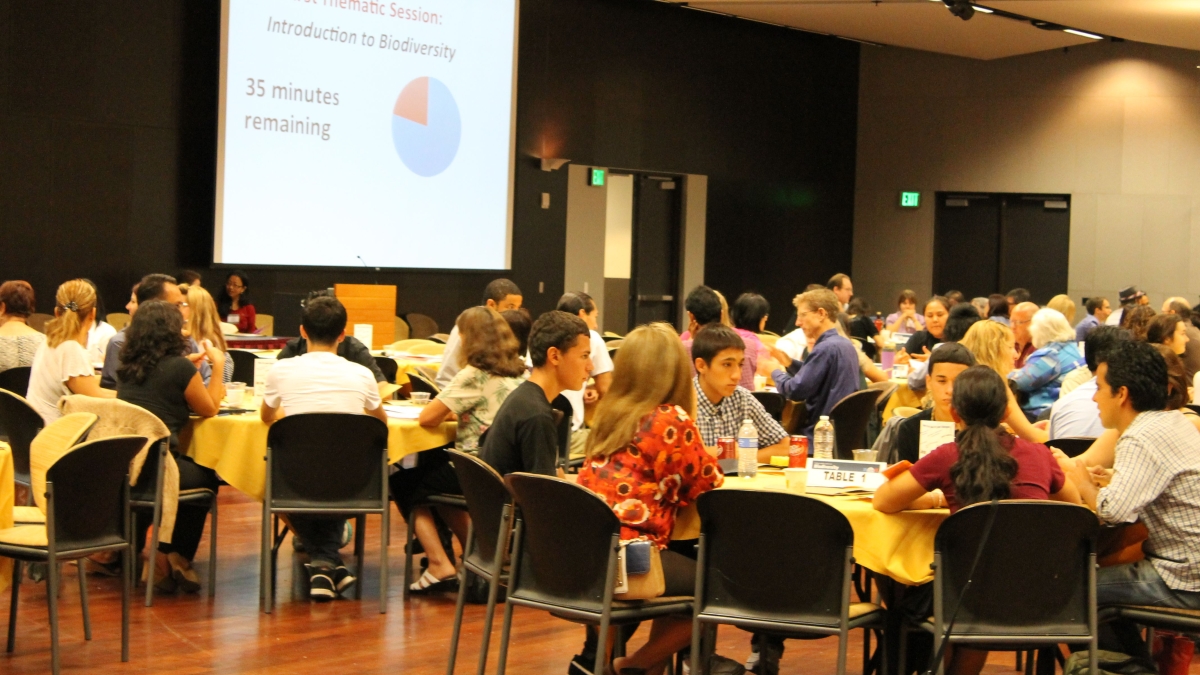US citizens call for political action to stop the decline in biodiversity

Boston, Denver, Phoenix and Washington area residents are among 3,000 participants from 25 countries to express strong support for taking further political action in order to stop the global decline in biodiversity. The results report from the World Wide Views (WWViews) on Biodiversity, released at the 11th Conference of Parties (COP 11) of the UN Secretariat for the Convention on Biological Diversity (CBD) at Hyderabad India, indicate significant similarities of opinion between countries, across continents and among different age groups.
In the United States, more than nine in 10 participants thought most people in the world are affected by biodiversity loss, and almost 85 percent were “very concerned” about the issue. Nearly all the rest were “concerned.” The citizens strongly supported education at all levels (85%) as the best means to stop the decline in biodiversity. A significant minority thought new natural areas should be established even if doing so conflicts with economic interests. Nearly six in 10 respondents favored eating less meat as a way to reduce the pressure on agricultural land, and nine in 10 favored creating additional marine protected areas on the High Seas.
Despite the general consistency between views in developed and developing countries, a surprising difference emerged regarding who should pay for preserving biodiversity. Most citizens in both developed and developing countries thought developed countries should pay the main part of costs for preserving biodiversity in developing countries, replacing the system of voluntary donations currently in place. However, citizens in developing countries were even more likely than those in developed countries to say developing countries should pay the main part among the minority who took this view.
In addition to the global questions, participants in the U.S. sites developed recommendations about the desirability of adopting a national biodiversity strategy and action plan, something the CBD is advocating all countries do under its strategic plan for biodiversity.
WWViews on Biodiversity is the result of a unique cooperation between CBD, the Danish Ministry of the Environment and the Danish Board of Technology. Participants in the 34 day-long meetings across the world, which were held on Sept. 15, were non-expert citizens selected to reflect the demographic diversity in the respective countries and regions. Using unbiased information about biodiversity and policy measures to stop its decline, participants deliberated with their fellow citizens and voted on alternative answers to 18 predefined questions.
The complete results report is available at: http://biodiversity.wwviews.org/. The results will be presented in a special session of the COP 11 meeting on Oct. 18.
“World Wide Views takes place in a polarized society where discussion, not debate is needed more than ever,” remarked Massachusetts State Representative Martha Walz. Speaking at the WWViews forum at the Museum of Science, Boston, she added, “At a time when it is difficult to get people to sit down and talk respectfully about anything, the fact that thousands of people in over 30 sites around the world are having this important conversation is a welcome development.”
WWViews forums in the U.S. were coordinated by the Expert and Citizen Assessment of Science and Technology (ECAST) network. ECAST was officially launched at the Woodrow Wilson Center for International Scholars in April 2010 with the release of the report, "Reinventing Technology Assessment: A 21st Century Model."
In its first large-scale collaborative project, ECAST coordinated WWViews citizen forums in four U.S. cities: Boston (Museum of Science, Boston, and the University of Massachusetts Amherst); Denver (Colorado School of Mines, Denver Botanical Garden); Phoenix (Arizona State University, Consortium for Science, Policy and Outcomes at Arizona State University); and Washington (Consortium for Science Policy and Outcomes at Arizona State University, Virginia Tech, and the Koshland Science Museum). Thoughts and reflections from WWViews biodiversity project can be found at: http://ecastnetwork.wordpress.com/.
Results from the WWViews project in the U.S. and the lessons learned about further developing the capacity for conducting science and technology assessment through citizen participation will be presented in a comprehensive report at a special event of the Science and Technology Innovation Program at the Woodrow Wilson International Center for Scholars on Dec. 6.
Founded in 2010 as a response to a call to use “citizen participation, collaboration and expert analysis to inform and improve decision-making on issues involving science and technology,” ECAST is a collaboration among university, informal science education, and policy research partners to establish a non-partisan, independent, flexible, and proactive technology assessment capability in the United States. The Consortium for Science, Policy and Outcomes at Arizona State University, Loka Institute, Science Cheerleader, Museum of Science Boston, and the Science and Technology Innovation Program at the Woodrow Wilson International Center for Scholars are its founding members.